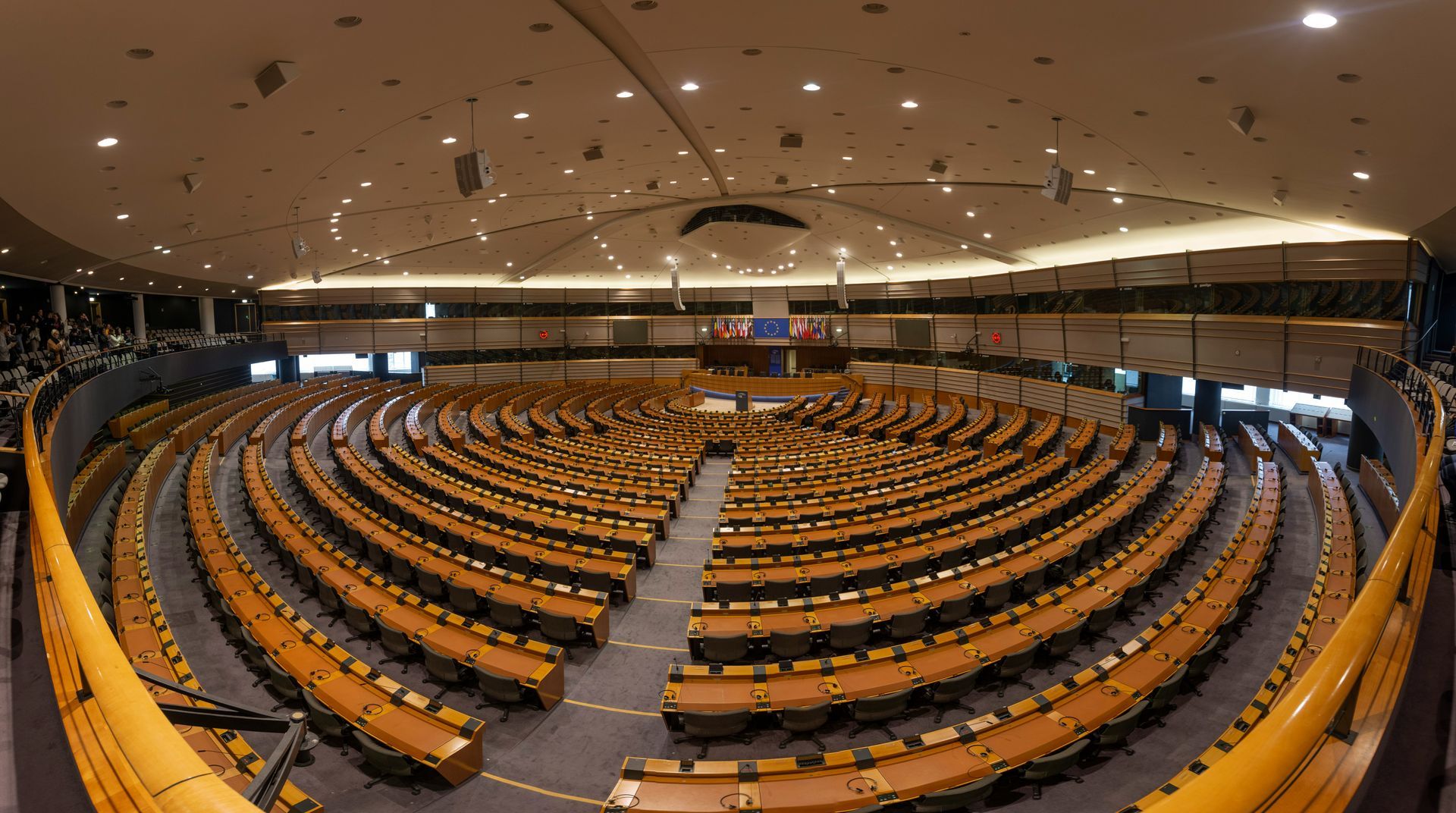European Commission-designate Hearings: Key Takeaways on Trade, Sanctions, Digital and Enlargement Policy

Insights From Commissioner-designate hearings on the Future of EU Policy:
Trade, Sanctions, Digital, and Enlargement
The confirmation of the new European Commissioners by the European Parliament (EP) has been postponed due to disagreements between the two largest political groups, the S&D and EPP. Despite the delay, all Commissioner-designates have presented their views and priorities on key issues within their respective portfolios. In general, all the Commissioner-designates were fully aligned with their Mission Letters that they received from Commission President-elect Ursula von der Leyen. They all made systematic reference to the Draghi Report on competitiveness and innovation and stressed the EU's priority to comply with and enforce the core values of the EU, including democracy, human rights, the rule of law and international law.
In this briefing, we have summarized the most significant takeaways from the hearings, focusing on the EU’s evolving trade, sanctions, digital, and enlargement policies for the next five years. Since these policy areas often overlap across portfolios, the insights provided are drawn from multiple hearings.
Trade Policy
Commissioner-designates shared a common perspective that the EU’s core trade priorities lie in finalising Free Trade Agreements (FTA) with key regions, such as Mercosur, India and Thailand, as well as modernising existing agreements with Mexico and Australia. Maroš Šefčovič, the Commissioner-designate for Trade and Economic Security, underscored the importance of strengthening EU trade defence mechanisms to combat economic coercion, promoting a level playing field, and integrating environmental standards into trade practices. Similarly, Wopke Hoekstra, the Commissioner-designate for Climate, Net Zero, and Clean Growth, highlighted the need to align trade policies with climate goals to ensure sustainable growth.
Together with Valdis Dombrovskis, the Commissioner-designate for Economy and Productivity, Šefčovič stressed the urgency of reinforcing EU trade defence mechanisms to counter rising global competition and economic pressures. Both nominees advocated for a free and fair trade framework, rejecting the weaponisation of trade, including measures such as economic coercion and unilateral restrictions, citing China's recent rare earth export limitations as an example. Šefčovič also emphasized the importance of diversifying Foreign Direct Investment (FDI) and integrating trade with climate policy to support sustainable economic growth.
Addressing the issue of critical raw materials, Šefčovič proposed the establishment of a new EU Raw Materials Agency—drawing inspiration from Japan—to secure reliable global access to these resources. Additionally, he suggested creating a new EU Customs Authority to streamline trade processes while balancing openness with enhanced security measures.
Sanctions Policy
The enforcement and circumvention of EU sanctions, particularly those targeting Russia, emerged as a central theme during the hearings. Michael McGrath, the Commissioner-designate for Democracy, Justice, and the Rule of Law, Kaja Kallas the High Representative for Foreign Affairs and Security Policy and Vice-President of the European Commission, and Maroš Šefčovic all reiterated the importance of coordinated sanctions to uphold EU values and international law. emphasized the critical role of coordinated sanctions in upholding EU values and international law. Discussions included plans to operationalize the Anti-Money Laundering Authority (AMLA) to bolster financial oversight and prevent sanctions violations. Additionally, some nominees advocated for leveraging sanctions as a tool to enforce environmental standards, underscoring the need for coordinated actions against non-compliant entities.
Kaja Kallas reaffirmed the EU’s commitment to enforcing existing sanctions against Russia, signaling that further measures could be introduced in 2025. To address sanctions circumvention, she proposed stricter oversight of EU companies and suggested repurposing frozen Russian assets for Ukraine’s reconstruction, emphasizing that such actions align with international law.
Kallas also expressed concerns about China’s role in supporting Russia, particularly regarding sanctions evasion, and stressed the importance of close coordination with the United States. The Commissioner-designates further acknowledged the need to address sanctions circumvention by non-EU countries, indicating that future sanctions could expand beyond Russia to include Belarus and entities involved in violations in the West Bank.
Digital Policy
Commissioner-designates emphasised that digital transformation remains a cornerstone of the EU’s strategy to boost competitiveness, resilience, and security. Ekaterina Zaharieva, Commissioner-designate for Startups, Research, and Innovation, and Maria Luís Albuquerque, Commissioner-designate for Financial Services and the Savings and Investments Union, highlighted the critical need for investments in emerging technologies such as AI, blockchain, and cybersecurity to drive innovation and regulatory progress. Finalising the Capital Markets Union and expanding digital finance infrastructure were noted as essential steps toward fostering a strong and competitive digital economy. Digital sovereignty emerged as a cross-cutting priority, with nominees like Kaja Kallas advocating for robust cybersecurity measures and reducing dependencies on foreign technologies.
Maria Luís Albuquerque underscored the EU’s ambition to integrate AI into digital and sustainable finance, particularly within initiatives like the Capital Markets Union and the evolving EU Banking Union. She characterized AI as both a catalyst for innovation in financial services and a technology requiring diligent oversight to mitigate risks related to security, data protection, and regulatory compliance. Albuquerque also introduced the concept of a “Savings and Investment Union,” potentially supervised by the European Central Bank (ECB), where AI could enhance operational efficiency and strengthen oversight mechanisms. This approach aims to align digital innovation with financial sustainability and governance.
Enlargement
Marta Kos, the Commissioner-designate for Enlargement, Dubravka Šuica, the Commissioner-designate for the Mediterranean, and Kaja Kallas all stressed that EU enlargement remains a “geostrategic priority” and reaffirmed the commitment to a merit-based approach for candidate countries.
The nominees identified Montenegro and Albania as the most likely candidates for EU accession by 2026–2027, with other countries, including Ukraine, projected to join closer to 2030. They emphasized that measurable progress in areas such as good governance, anti-corruption efforts, and reform implementation will be critical for advancing along the accession path. Kos and Kallas also acknowledged the institutional challenges posed by enlargement, particularly in light of the EU’s already strained decision-making process. Both hinted at the necessity of Treaty reforms, including the potential adoption of Qualified Majority Voting (QMV), to facilitate more efficient consensus-building on future accessions.







